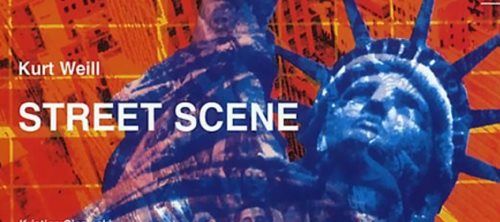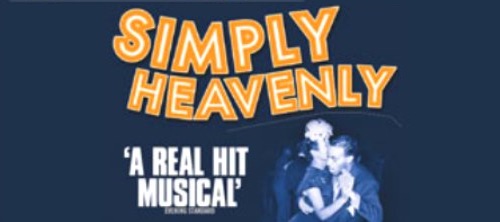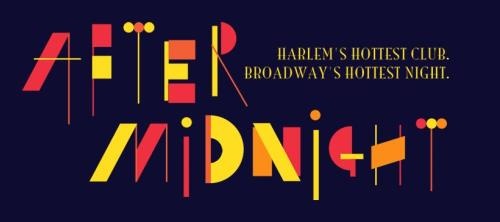Pas de biographie disponible.
Compositeur Musique additionelle Librettiste Parolier Metteur en scène Chorégraphe Producteur création Producteur version

Musical
Musique: Kurt Weill • Paroles: Langston Hughes • Livret: Elmer Rice • Production originale: 4 versions mentionnées
Dispo: Résumé Synopsis Commentaire Génèse Liste chansons
Genèse: In Germany, in the late 1920s and early 1930s, Weill had already begun to use American jazz and popular song elements in his operas. After fleeing from Germany in 1933, he worked in Paris, then England, and then, beginning in 1935, in New York. Weill made a study of American popular and stage music and worked to further adapt his music to new American styles in his writing for Broadway, film and radio. He strove to find a new way of creating an American opera that would be both commercially and artistically successful.[2] Weill wrote: "It's my opinion that we can and will develop a musical-dramatic form in this country (America) but I don't think it will be called 'opera', or that it will grow out of the opera which has become a thing separate from the commercial theater, dependent upon other means than box-office appeal for its continuance. It will develop from and remain a part of the American theater – 'Broadway' theater, if you like. More than anything else, I want to be a part in that development."[3] Weill sought to create musical theatre that would "integrate drama and music, spoken word, song, and movement."[4] He further wrote: "This form of theater has its special attraction for the composer, because it allows him to use a great variety of musical idioms, to write music that is both serious and light, operatic and popular, emotional and sophisticated, orchestral and vocal. Each show of this type has to create its own style, its own texture, its own relationship between words and music, because music becomes a truly integral part of the play – it helps deepen the emotions and clarify the structure.[5] Weill saw Rice's naturalistic play in 1930 and wanted to adapt it. As he wrote: "It was a simple story of everyday life in a big city, a story of love and passion and greed and death. I saw great musical possibilities in its theatrical device – life in a tenement house between one evening and the next afternoon. And it seemed like a great challenge to me to find the inherent poetry in these people and to blend my music with the stark realism of the play."[6] In 1936, Weill met Rice in New York and suggested the adaptation, but Rice turned him down. After the successes of Weill's Knickerbocker Holiday in 1938, Lady in the Dark in 1940, and One Touch of Venus in 1943 (and after Weill had composed incidental music for Rice's Two on an Island in 1939), Weill asked again, and Rice agreed. The two chose Harlem Renaissance poet Langston Hughes to, as Weill put it, "lift the everyday language of the people into a simple, unsophisticated poetry." In order to enhance the realism of the new work, the collaborators utilized dialogue scenes, sometimes underscored by music. To create music that would portray the ethnic melting pot of characters described in Rice's book, Weill travelled to neighborhoods in New York, watching children at play and observing New Yorkers. Hughes took Weill to Harlem nightclubs to hear the newest musical idioms of black American jazz and blues. Hughes wrote, "The resulting song was composed in a national American Negro idiom; but a German, or someone else, could sing it without sounding strange or out of place." Weill and many critics have considered the score to be his masterpiece. After a tryout in Philadelphia, revisions were made, and Street Scene opened on Broadway at the Adelphi Theater on January 9, 1947. It closed on May 17, 1947, after 148 performances, experiencing high running costs. The production was directed by Charles Friedman, with choreography by Anna Sokolow, and produced by Dwight Deere Wiman and The Playwrights' Company (Maxwell Anderson; S.N. Behrman; Elmer Rice; Robert E. Sherwood; Sidney Howard). Scenic and lighting design were by Jo Mielziner; costume design was by Lucinda Ballard. The production starred Anne Jeffreys as Rose Maurrant, Polyna Stoska as Anna Maurrant, Norman Cordon as Frank Maurrant, Brian Sullivan as Sam Kaplan, Hope Emerson as Emma Jones, Sheila Bond as Mae Jones, and Danny Daniels as Dick McGann. Juanita Hall was a notable replacement. Weill received the first Tony Award for Best Original Score, and Ballard received the 1947 Tony Award for Best Costume Design, competing with other strong musicals that year, notably Finian's Rainbow by Burton Lane and Brigadoon by Frederick Loewe. A production by the English National Opera at the London Coliseum Theatre in 1989 included Catherine Zeta-Jones as Mae Jones. The Opera Group, Young Vic, and Watford Palace Theatre gave the first UK production in 20 years in July 2008, winning the Evening Standard Award 2008 for Best Musical. Another production was performed in the grounds of the Old Royal Naval College in Greenwich on 19 July 2008, with the cast largely drawn from students from Trinity College of Music. In 2011 Street Scene was performed by the Opera/Music Theatre Workshop of Southeastern Louisiana University and, in German, by the Bayerische Theaterakademie August Everding and the Munich Radio Orchestra, led by Ulf Schirmer. The Opera Group presents the first performance in Austria in October 2011, and the Semper Oper in Dresden produced the work to great acclaim earlier in 2011. The first performance in Spain will be in March 2013, at the Gran Teatre del Liceu.
Résumé: Street Scene is a story of love, passion, greed and death on a New York City street. The show concerns life in a tenement house between one evening and the next afternoon. The show focuses primarily on the Maurrant family. Frank Maurrant, a Broadway stagehand, is an abusive drunk. His wife, Anna, is having an affair with Mr. Sankey. Their daughter, Rose, is caught in the middle of her feuding parents and struggles with her own problems. When Frank catches Anna having an affair, he shoots her dead. Nevertheless, after the carnage is cleared up, life goes on as normal on the New York street.
Création: 16/12/1946 - Shubert Theatre (Philadelphia) - représ.

Musical
Musique: Margaret Martin • Paroles: Langston Hughes • Livret: Langston Hughes • Production originale: 4 versions mentionnées
Dispo: Résumé Génèse Liste chansons
Genèse: When Hughes decided to take Simple onto the stage, he used his second Simple book, Simple Takes a Wife, (published in 1953) as a starting point. With Simple Takes a Wife, Hughes had written more of a novel, exploring several characters in greater depth, especially the women who had appeared only briefly in earlier Simple material. The novel had originally been called Simply Heavenly and when Hughes decided to use it as the basis of a musical script, he returned to this title. The process of getting a play from idea to stage was a frustrating one and Hughes wrote of Simply Heavenly's ups and downs in an article called 'You're Simple if You Want to Write a Play'. "When I first put Simple into play form myself, it was a straight comedy. The producers holding the option, however, suggested making a musical, so I rewrote it and inserted 20 songs. Meanwhile these showmen went broke and allowed their option to run out. The producers who took the next option had entirely opposite ideas, so working with a new director of their choice, the play underwent a third drastic revision. Still no production came about." During the many rewrites Hughes drew from the columns he had written about Simple. He said he had fun letting the directors think he was a fast writer. He also thought that the "songs are the most fun" and took pleasure in working with David Martin in adding many new musical numbers. Finally, under the direction of a fourth director, the play came to the stage. Simply Heavenly opened in May 1957 at the auditorium of the Order of the True Sisters on West 85th Street to wonderful notices. The production thrived in this small, off-Broadway auditorium until the fire department closed the theatre for building violations. The show then moved to the Playhouse, an intimate theatre on Broadway, opening there on August 20, 1957. It was well-received by the critics and achieved a respectable run. Brooks Atkinson in The New York Times praised it saying: "Mr Hughes loves Harlem. He loves the humour, the quarrels, the intrigues, the crisises and the native shrewdness that makes life possible from day to day. He has written Simply Heavenly like a Harlem man. If it were a tidier show, it would probably be a good deal less enjoyable. It would seem like something that has been improvised out of high spirits for the sake of a good time." Simply Heavenly had a very brief run at the Adelphi in London in 1958, but since then hasn't been seen in Britain until the Young Vic's production in 2003.
Résumé: This story by Langston Hughes, based on his novels about Jesse B. Semple, a Joe Doakes Harlemite, seems to capture the colour and the humour and poetry of these neighbours-to-the-North as no outlaner could imitate. This is the story of the New York Negro written from the inside out; it is a happy and exciting evening. There is a mood and a temper about this show that is unique." The NY Post, describes the play: "It possesses such unhackneyed freshness and cheeriness of spirit, such humorous decency and regard for the human spirit, that, as offered last night at the 85th Street Playhouse, it was a real delight. Its great merit is that Mr. Hughes contemplates the people he is writing about with a respect that never becomes patronising or stuffy and always retains its sense of humour." The setting is Paddy's bar, a refuge whose regulars are either hard working or out of work — both are gond enough reasons to drink and sing the blues away. The hero is Jesse who is in love with Joyce but can't resist the advances of man-eater Artie. But never mind whether Jesse and Joyce do or don't. The luckless Citfiddle picks out the most heartrending blues on his guitar, while queen of the drinking hole is the big-busted, short-tempered MamieWhat's important is spending time in a bar where every emotion is a musical cue.
Création: 20/8/1957 - Playhouse Theatre (Broadway) - représ.

Musical
Musique: *** Divers • Paroles: *** Divers • Livret: Langston Hughes • Production originale: 1 version mentionnée
Dispo: Résumé
Vidéos:
Genèse:
Résumé: Celebrates Duke Ellington's years at the famed Harlem nightclub in the 1920s and '30s, when the joint was jumping with shows featuring big band swing and blues music.
Création: 18/11/2011 - New York City Center (Broadway) - représ.